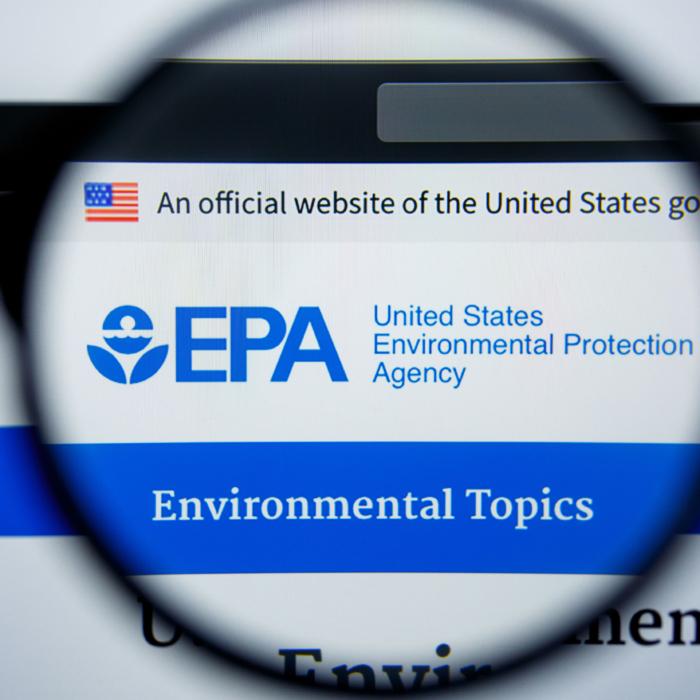The proposal to add the fluoride compound to another 1.6 million homes has been put out for public consultation, the Department of Health announced on March 25. Around half of the northeast already has fluoridated water, including parts of County Durham, Gateshead, and Newcastle-upon-Tyne.
Public health authorities maintain that fluoridation at the correct level is safe and effective in preventing tooth decay, with the Health and Care Act of 2022 taking the power to introduce water fluoridation schemes away from local councils and placing it in the hands of central government.
Professor Peter Kelly, regional public health director for the northeast, said, “Tooth decay is largely preventable but remains a major public health issue, particularly in more deprived areas, including parts of the north east, and among children.”
‘No Proof Whatsoever’
“If you can’t afford to buy filtration units or bottled water, you’re going to have to drink tap water. And that means that you’re disadvantaged because it does make you ill,” she said.And she claimed the available evidence clearly shows fluoridation causes a reduction in IQ in the unborn child, with this being more marked in bottle-fed infants.
“The reduction in intelligence happens more in the womb. Nobody tells a pregnant mum to stop taking in fluoride. And what’s in her bloodstream goes into the fetus and because her blood supply increases during pregnancy, she needs to drink more. And she can’t drink alcohol, so she drinks more tea.”
In drinking tap water and perhaps several cups of tea a day, a pregnant woman can easily consume more than the “safe” daily allowance of fluoride which is set at 66 milligrams per day, Ms. Warren said, adding that many dental treatments and pharmaceutical products contain fluoride, all adding to an individual’s daily consumption.

Benefits ‘Hugely Overstated’
Ms. Warren said the two major long-term health problems which can arise from fluoridation are hypothyroidism and bone problems.“The problem with the thyroid has been known about for over a century because fluoride was used to correct hyperthyroidism,” she said, referring to the historic treatment of patients in fluoridated baths.
The opposite problem of hypothyroidism was shown to be significantly more likely in people who drank fluoridated water by Professor Stephen Peckham of Kent University in 2014.
“Recent high-quality UK studies show how limited the benefits to dental decay are. Oral health in Scotland has significantly improved without fluoridation. The government and dental lobby are wrong to keep overstating the benefit and saying fluoridation is safe and effective.”
She said that most people do not think about water quality when they buy a house, and very few would be aware that the fluoride compound itself is derived from “an industrial hazardous waste product of fostate fertilizer manufacturing,” which she discovered is washed out of chimneys in the Israeli desert, placed in tanks, and transported across the Mediterranean to the UK’s water treatment centres.
‘Imposition of Medicine Without Consent’
While the overwhelming majority of politicians appear to support the “safe and effective” narrative on fluoridation, there are a small number of dissenting voices, including Lord Reay.Speaking in the House of Lords during a debate on the Health and Care bill, he said: “The question of human rights is important considering that water fluoridation effectively represents the imposition of medicine without consent. Some European countries have rejected the policy because they believe that it conflicts with medical ethics and best practice.”
He said that claims the intervention is safe by the Department of Health should be backed up “by attaching particular weight to the latest evidence and should specifically include international evidence.”
“In the last few years, an increasing number of international peer-reviewed studies have highlighted the distinct correlation between water fluoridation and serious health ailments, particularly with regard to the developing foetus. We would be committing a disservice to the public if all the latest available research was not analysed effectively.”
Lord Reay pointed to a 1983 legal case in Scotland where the judge, Lord Jauncey, concluded that proposed fluoridation by Strathclyde Council amounted to illegitimate medical treatment via the public water supply.
“Since then, the health service in Scotland has focused on other measures to improve children’s oral health, with a considerable degree of success.”
Professor Sir Chris Whitty, chief medical officer for England, has dismissed safety concerns over fluoridation, condemning what he called “exaggerated and unevidenced” claims about health risks.
He said in the latest policy statement: “Water fluoridation can reduce the prevalence of tooth decay and improve dental health equity across the UK. It should be seen as a complementary strategy, not a substitute for other effective methods of increasing fluoride use such as tooth brushing.”

However, a recent study commissioned by Health Canada found “strong evidence” that water fluoridation can lower children’s IQ, with its findings becoming a point of debate in a lawsuit to stop water fluoridation in the United States.
Most Developed Nations Have Rejected Fluoridation
Fluoride is a naturally occurring mineral but is only added to about 5 percent of the water supply around the world. Most developed nations in the world have rejected fluoridation, including the vast majority of Western Europe.Some Asian countries have a notably high percentage of their supply fluoridated, including Hong Kong and Singapore, which has a 100 percent rate. In Ireland, the rate of fluoridation is 73 percent, compared to 64 percent in the United States and 44 percent in Canada.
The World Health Organisation says that too much fluoride can be harmful, and recommends a safe limit of about twice the levels that fluoridation schemes are likely to set. The government has said that levels must be “closely monitored” by drinking water inspectors.
Greg Fell, a director of Public Health England, said in the consultation announcement: “Water fluoridation schemes are the single most effective public health measure for reducing tooth decay rates. This proposed expansion therefore presents a real opportunity to improve health and wellbeing in the north east, and reduce the unacceptable gap in health outcomes that people living in different areas of the country currently experience.”
Ms. Warren said she is worried the consultation will not be “meaningful” because local authorities no longer have to pay for costly fluoridation schemes, and the government believes it will save money on children’s dental extractions, which have to be carried out in hospital.
“There have been no new fluoridation programs since the late 1980s. Every time they’ve floated it, they’ve been defeated—either by people like me, or by local authorities who are most reluctant to spend the money.”
“But now, it’s free as far as they’re concerned. So they’re just basically giving in. I find it really abysmal that this particular fashion hasn’t died out as far as the politicians are concerned.”







